Six things to look out for in the second week of the Vuelta a España 2019
More tough mountains and a crucial time trial feature in the Vuelta's second week
A stage 10 time trial
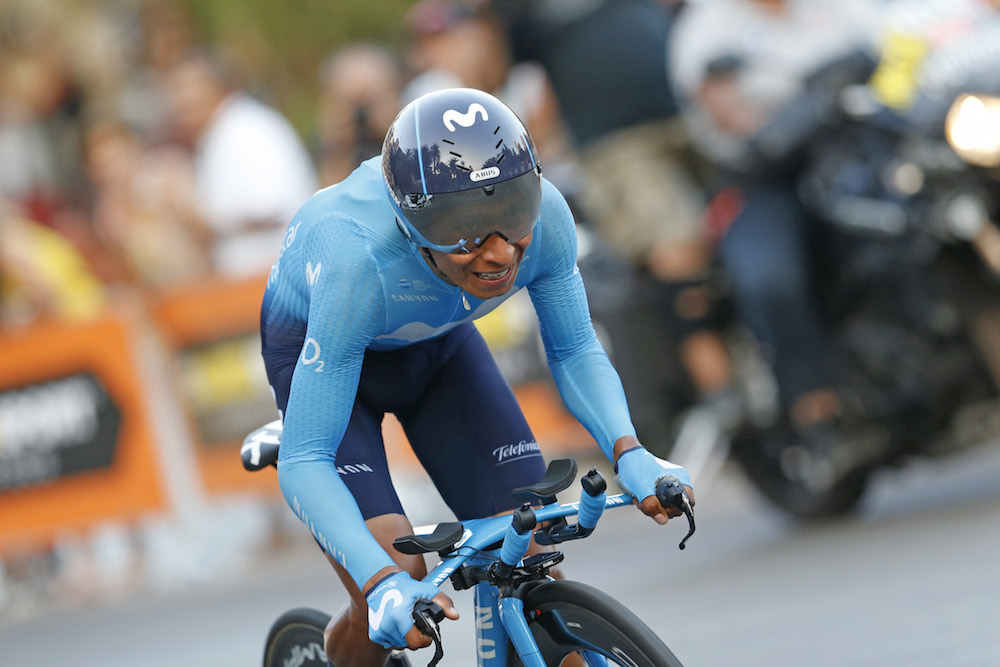
Week two kicks off with the only individual time trial of the 2019 Vuelta, a stage likely to be among the most important of the whole race.
>>> Vuelta a España 2019 stage 10 individual time trial start times
There will be plenty of specialists against the clock targeting a stage victory, including Nelson Oliveira (Movistar), the recently crowned silver medallist at the European Games; former time trial world champions Tony Martin (Jumbo-Visma) and Vasil Kyrienka (Ineos); and Thomas De Gendt (Lotto-Soudal), who will be be a contender if he can recapture the form that saw him claim in the time trial stage of the Tour de France earlier this year, which, incidentally, was also held in Pau.
But of primary interest will be how the top GC riders perform. It is widely expected that Primož Roglič (Jumbo-Visma) will end the stage as overall lead, thanks to his superior time trialling skills.
The big question is how well can his rivals limit their losses to him? Miguel Ángel López (Astana), Nairo Quintana and Alejandro Valverde (both Movistar) all lie within 20 seconds of each other on GC, and aren’t great against the clock. Over the course of the 36.2km undulating kilometres in Pau, those gaps are likely to grow much bigger, with the losers potentially left with too much time to regain to win the Vuelta.
Three more mountain top finishes
Get The Leadout Newsletter
The latest race content, interviews, features, reviews and expert buying guides, direct to your inbox!
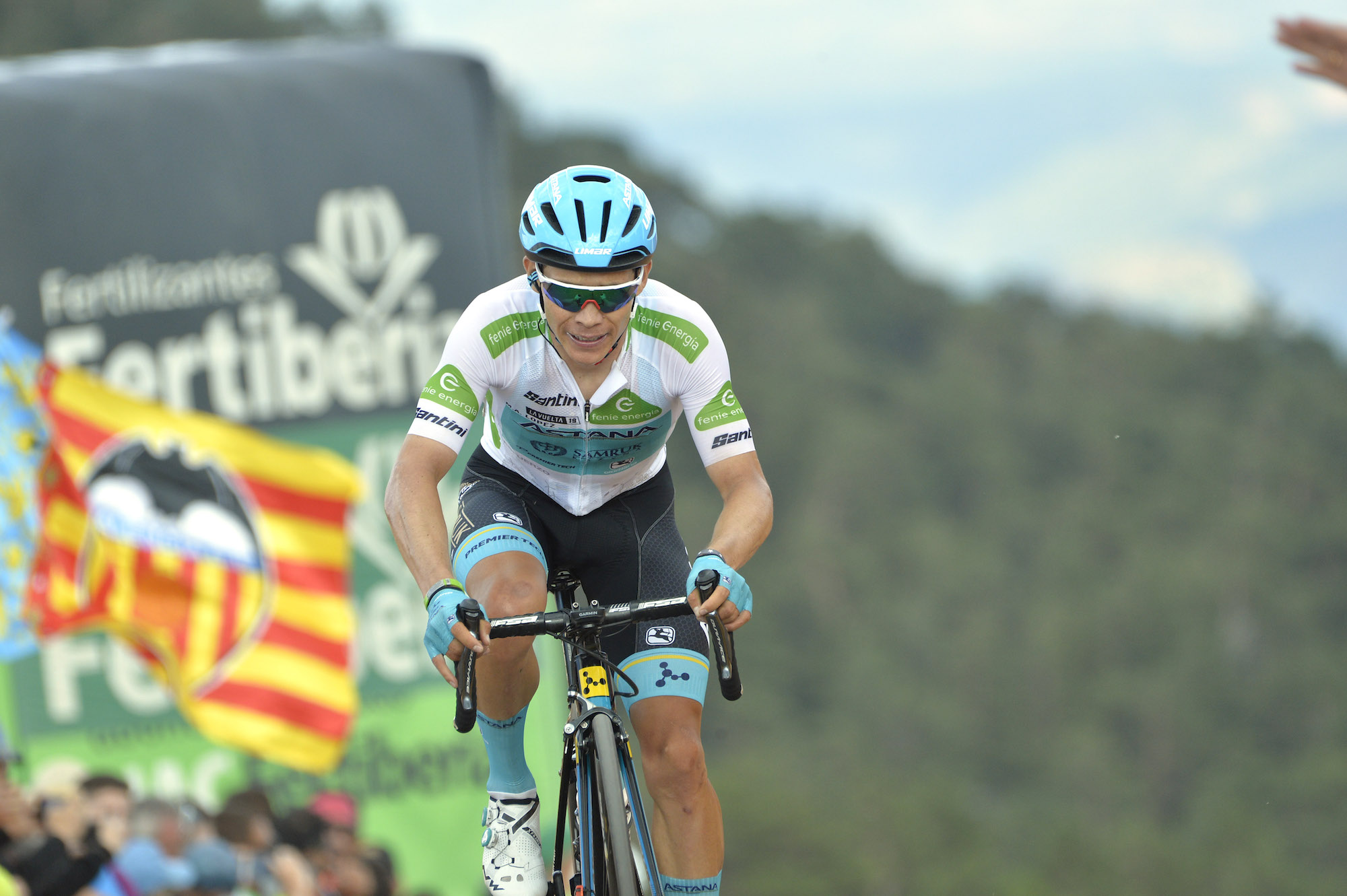
There aren’t quite as many summit finishes at there were in the first week, with just Friday’s stage 13, Sunday’s stage 15 and Monday’s stage 16 featuring a finish in the heavens, but each of these stages look set to be crucial thanks to the severity of the terrain that precedes the final climbs.
>>> Vuelta a España 2019 route: all you need to know about the route for the 74th edition
Stage 13 features no less than seven categorised climbs, more than any other at this year’s Vuelta. Although none of the first six climbs are rated any tougher than category two, the sheer volume of climbing will mean that whatever is left of the peloton will already be exhausted by the time it reaches the foot of the fearsomely steep Alto de los Muchachos - a climb where even an on-form Chris Froome was made to look human on its debut Vuelta appearance in 2017.
There may be fewer climbs on stage 15, but it looks set to be an even tougher day of racing, with all four of the mountains tackled ranked as category one.
Finally, stage 16 features the longest - and arguably the toughest - finish of them all, a 17.8km slog up the Alto de la Cubilla, a new climb that has never before been visited in the Vuelta.
These are full-on mountain stages, which demand strong legs throughout the day and not just short, intense efforts on the final climb. Contenders that have impressed during the summit finishes that characterised the first week may be found out here.
Will Movistar work together?
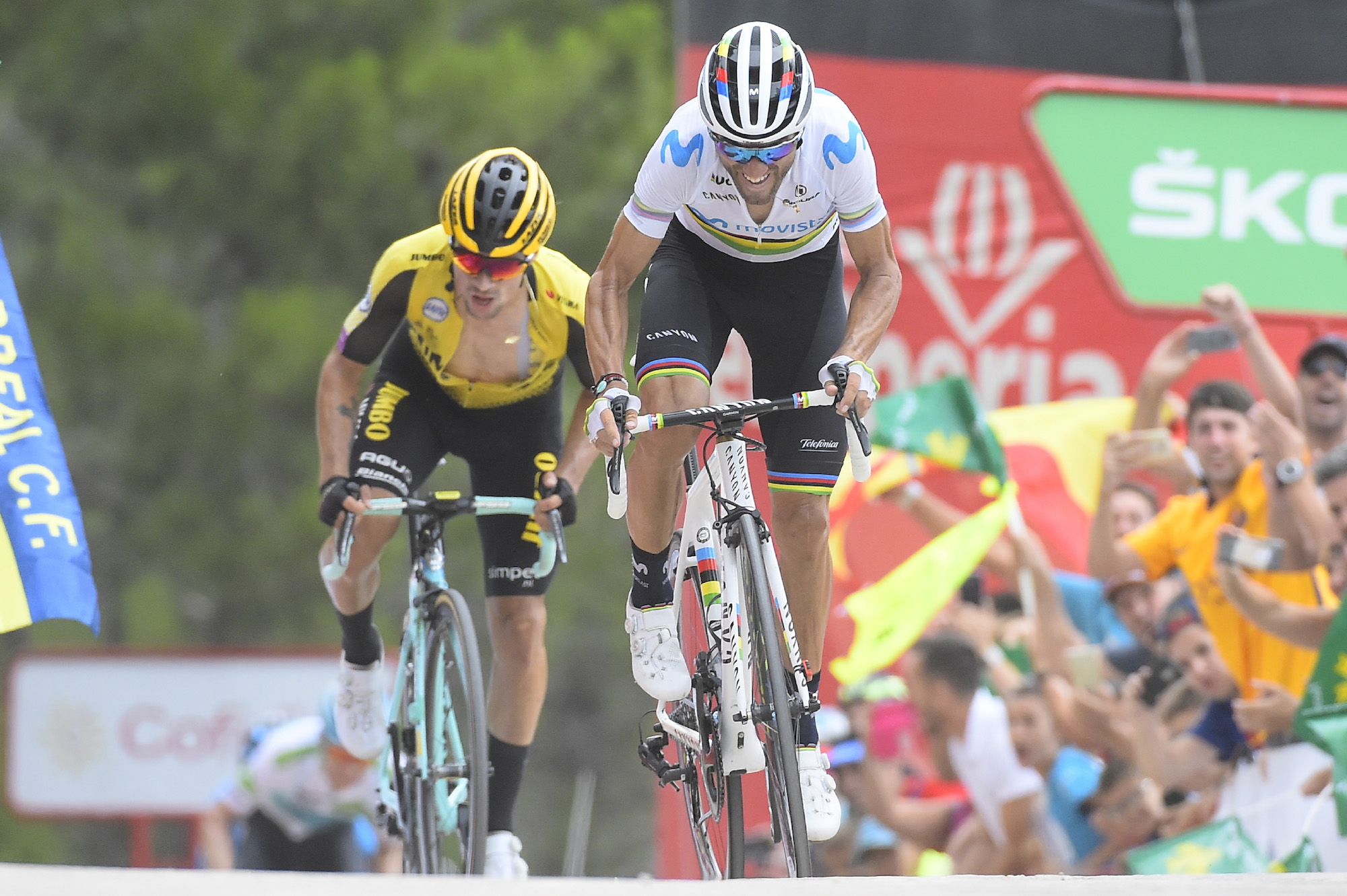
One of the more unpredictable elements going into the second week is how the Movistar riders will approach the race.
With Nairo Quintana currently leading the race and Alejandro Valverde closely behind in fourth at 20 seconds, they’re theoretically very well placed on GC, but will likely find themselves with ground to make up on Primož Roglič after the time trial.
Will both riders work together? At times last week they formed a lethal unit, such as during stage nine’s day in the Pyrenees when Valverde dutifully followed wheels to allow Quintana to take the red jersey.
But at other times they’ve actively worked against each other, and there are still signs of discord in the team. Marc Soler might have agreed to sacrifice his personal ambition on stage nine and drop back to help Quintana out, but he certainly wasn’t happy about it, and make a public display of discontent at being instructed by his team to do so.
With Nairo Quintana’s long-touted move next season to Arkéa-Samsic now officially announced, Valverde and co may feel less obliged to provide him the support he desires. Whether or not they commit to helping him may determine whether or not he is ultimately crowned overall champion.
Can Tadej Pogačar upset the favourites?
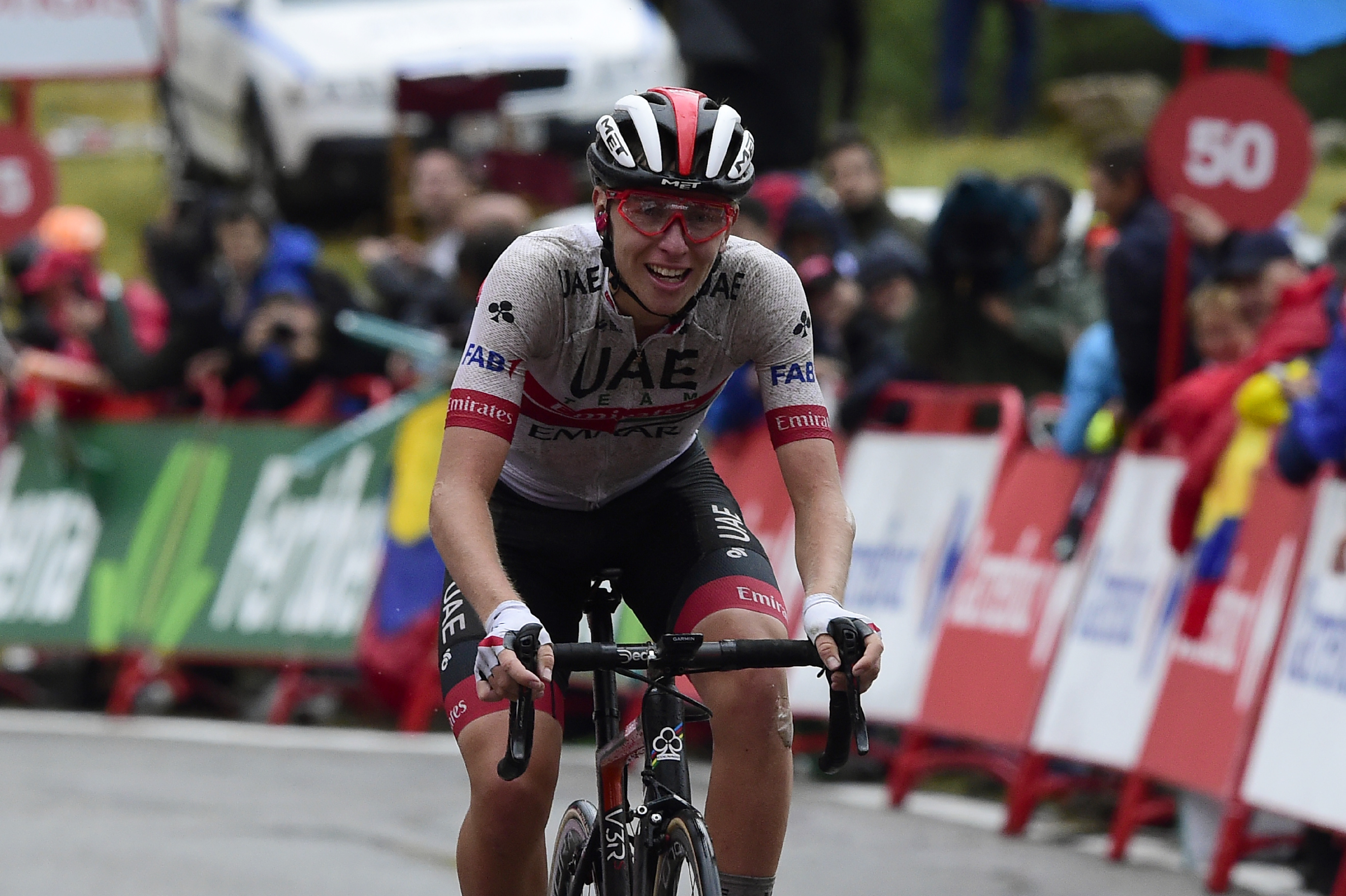
Tadej Pogačar had already impressed on his Grand Tour debut before Sunday, riding solidly for a top 10 position on the overall. But on stage nine he reached a whole new level, out-smarting and out-riding his far more experienced, accomplished rivals to win the hardest stage of the race so far.
The result puts Pogačar fifth overall at just 1-42 behind Quintana, a remarkable position for a rider who is, let’s remember, just 20 years old.
We don’t know much about the Slovenian’s time trialling ability given how new he is on the professional circuit, but the few glimpses we’ve had suggest it’s a discipline he’s comfortable in.
His overall victory in the Volta ao Algarve earlier this year was built partly on a very strong time trial performance, in which he finished fifth ahead of all the other GC contenders, and, for what it’s worth, he’s the reigning Slovenian time trial champion. It seems more than realistic that he could end stage 10 in a podium finish on the GC.
Riders like Egan Bernal, Mathieu van der Poel and Remco Evenepoel have already spent this season redefining what young riders are capable of. Can Pogačar follow in their footsteps and produce a genuine challenge for the top spot on the podium?
Bunch sprints
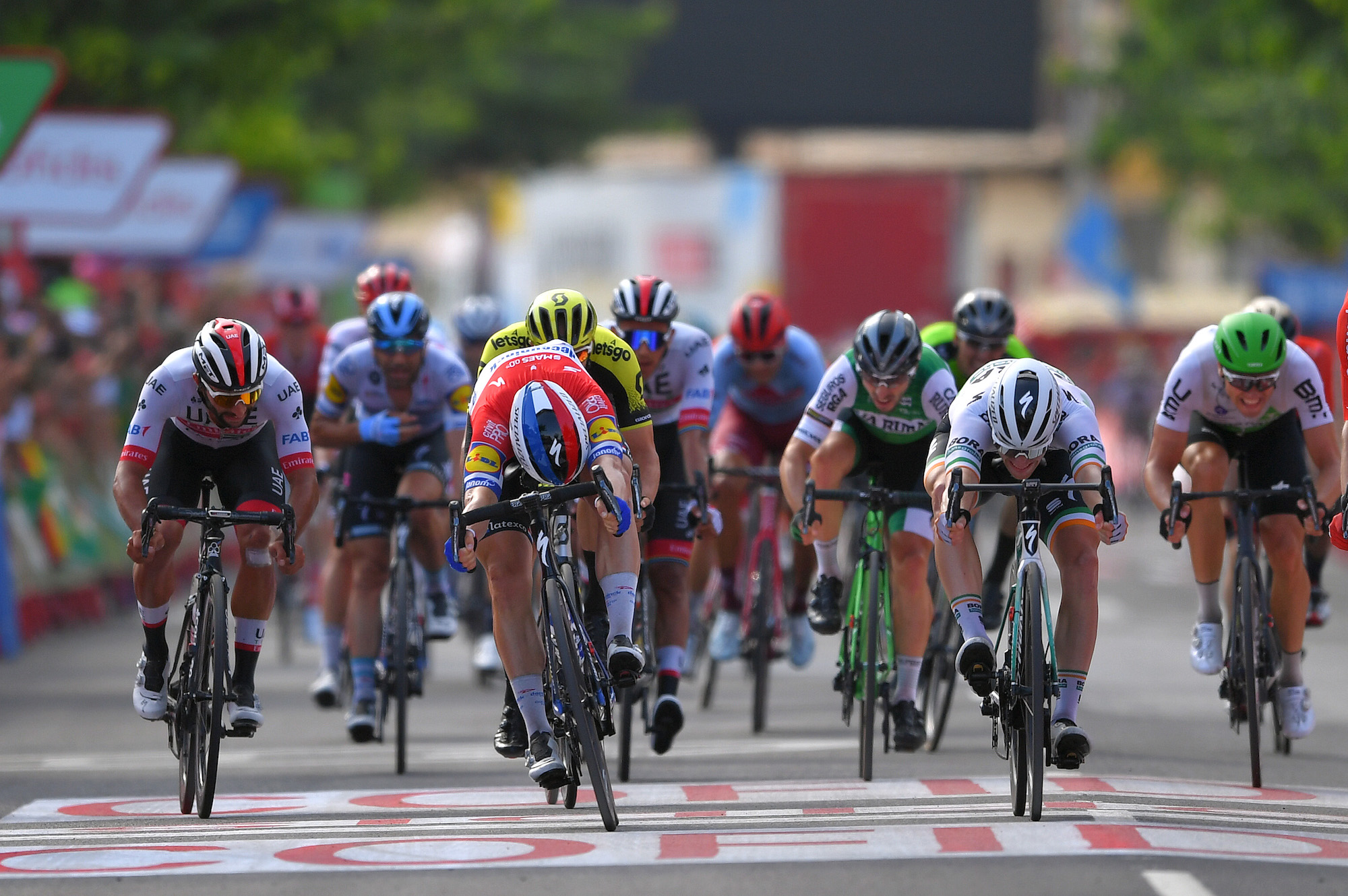
After some uncomfortable days spent climbing, the sprinters will be rewarded for their persistence with some flatter stages that could end in bunch sprints.
Stage 14 looks nailed on for a bunch finish, while a determined chase could see the breakaway brought back on the undulating terrain of stages 11 and 12.
In the couple of bunch sprints we’ve seen so far, Sam Bennett (Bora-Hansgrohe) looks the man to beat, having trounced the field on stage three, and only narrowly missing out the following day.
The man who beat him that day, Fabio Jakobsen (Deceuninck-Quick-Step), looks set to continue to be his major threat, but could be taken out of contention if a tough pace is set over the climbs.
The likes of Luka Mezgec (Mitchelton-Scott) and Fernando Gaviria (UAE Team Emirates) are also worth keeping an eye on.
Breakaways
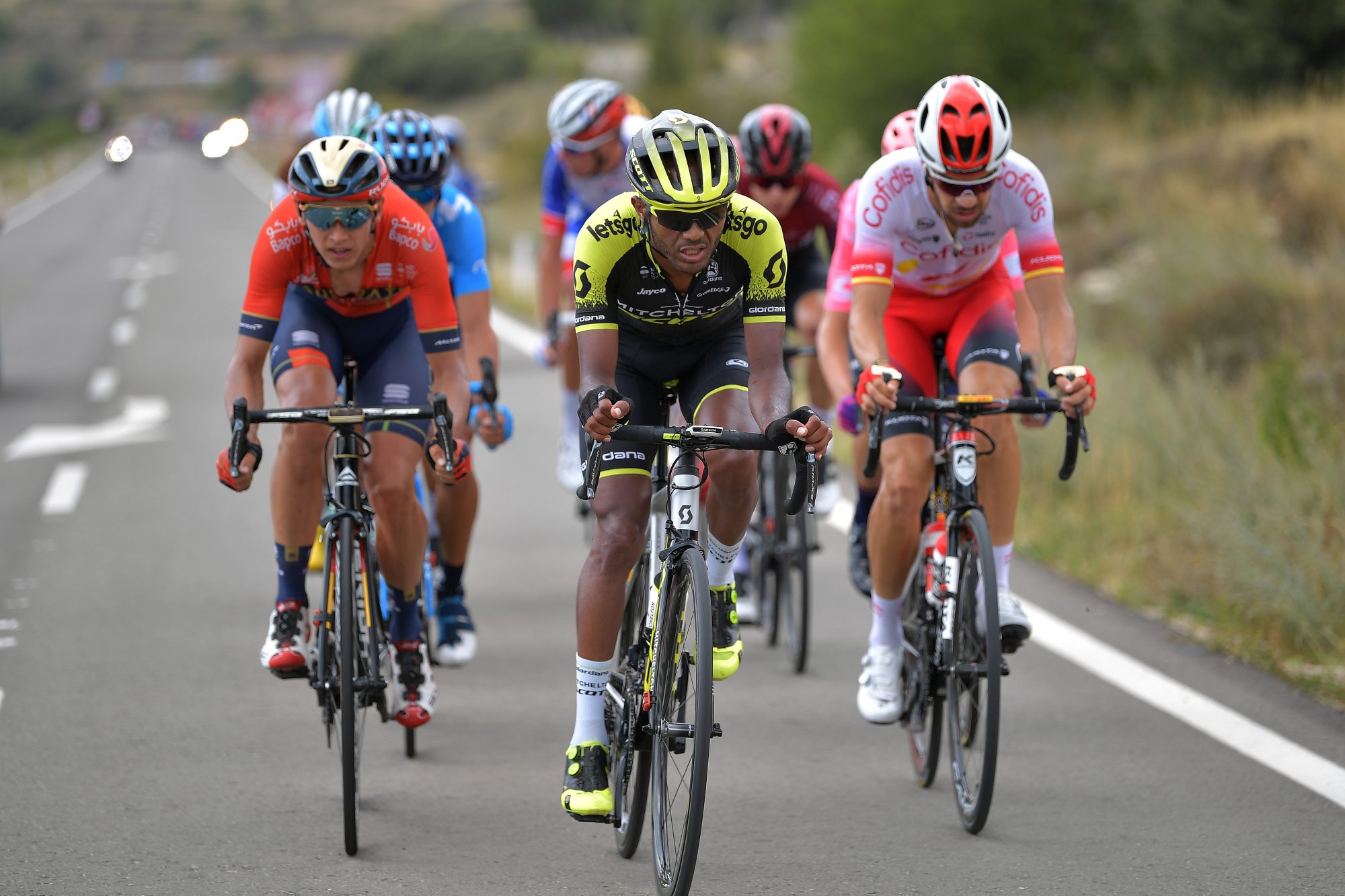
Although stages 11 and 12 could end in bunch sprints, it seems more likely that a breakaway will succeed on both days.
Both stages take place in the Basque Country, and the profiles are typical of the region’s notoriously undulating terrain.
The former stage is pretty much up and down all day, with the toughest test being the category two Col d’Ispeguy crested 57km from the finish, while the worst is saved for last on the latter stage in the form of three short category three climbs in quick succession within the last 40km.
The parcours for both looks perfect for a breakaway to form at the start of the day and make it all the way to the finish, which should prompt hard-fought battles to get into the break. Look out for renowned escape artists like Thomas De Gendt (Lotto-Soudal) and Luis León Sánchez (Astana), and riders who have already shown an eagerness to attack throughout the race so far such as Dylan Teuns (Bahrain-Merida) and Philippe Gilbert (Deceuninck-Quick-Step).

Thank you for reading 20 articles this month* Join now for unlimited access
Enjoy your first month for just £1 / $1 / €1
*Read 5 free articles per month without a subscription

Join now for unlimited access
Try first month for just £1 / $1 / €1
Stephen Puddicombe is a freelance journalist for Cycling Weekly, who regularly contributes to our World Tour racing coverage with race reports, news stories, interviews and features. Outside of cycling, he also enjoys writing about film and TV - but you won't find much of that content embedded into his CW articles.
-
 'It took everything' - Puck Pieterse outclimbs Demi Vollering to win La Flèche Wallonne
'It took everything' - Puck Pieterse outclimbs Demi Vollering to win La Flèche WallonneDutch 22-year-old shows Classics pedigree with first one-day victory
By Tom Davidson
-
 Tadej Pogačar flies to dominant victory at La Flèche Wallonne
Tadej Pogačar flies to dominant victory at La Flèche WallonneSlovenian takes second win at Belgian classic ahead of Kévin Vauquelin and Tom Pidcock
By Tom Thewlis